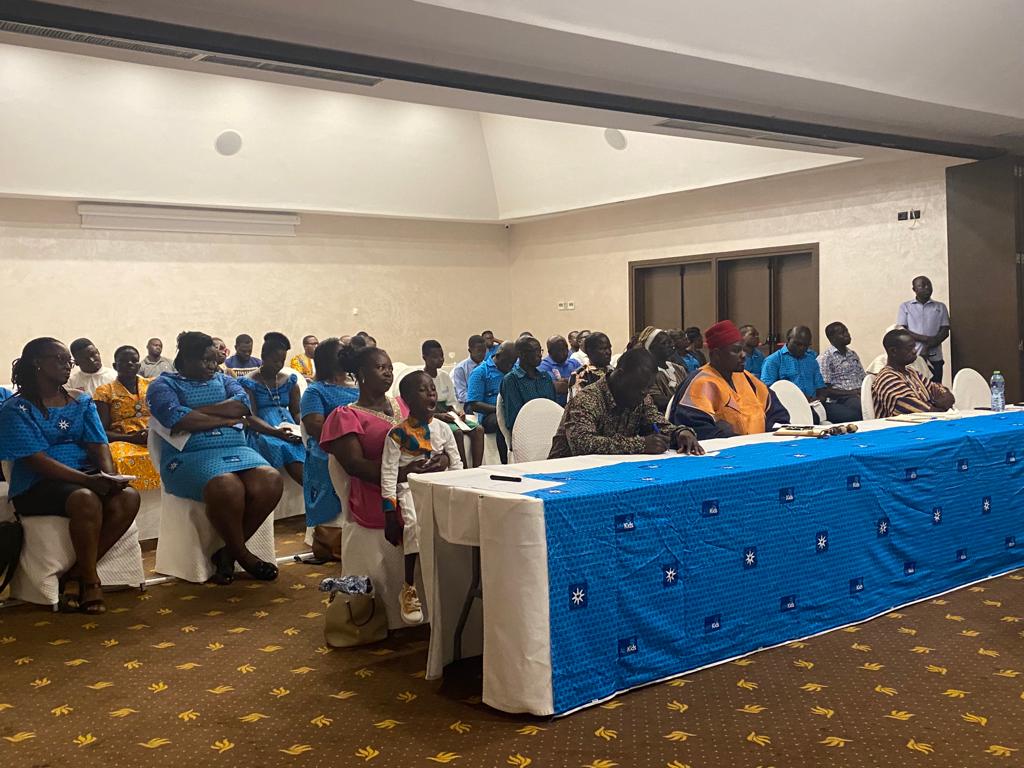By Anthony Adongo Apubeo
Bolgatanga, Sept 13, GNA – AfriKids Ghana, a Child Rights Organisation, has launched a five-year strategic plan aimed at contributing to achieving inclusive development and growth of children in Northern Ghana.
The initiative dubbed, “One million smiles”, would focus on building strong partnerships among key stakeholders, to build resilient and enabling communities for the sustainable growth and development of children in 320 communities in six districts in the five regions of the North.
It would also empower communities to protect and uphold the rights of children against harmful practices, provide access to inclusive and quality education and quality healthcare delivery, to help the country’s efforts towards attaining the Sustainable Development Goals (SDGs).
The beneficiary districts include Binduri and Builsa South in the Upper East Region, Mamprugu-Moagduri in the North-East region, Lambussie-Karni in the Upper West region, Gushegu Municipal in the Northern region and Sawla-Tuna-Kalba in the Savannah Region.
Mr David Pwalua, the Country Director, AfriKids Ghana, revealed these at Bolgatanga during the launch of the 20th anniversary of the organisation.
He said despite the efforts made towards achieving the SDGs particularly goals three and four which put emphasis on access to quality education and health, there were still huge gaps and varied challenges confronting the growth and development of children.
He said a baseline research conducted by the organisation and the works done in the past revealed that many children continued to experience violence and difficulties in accessing quality education and healthcare.
Mr Pwalua said despite the target of meeting the demands of the SDGs and Ghana being the first Country in the Sub-region to ratify the United Nations Convention on the Right of the Child, a lot was still required from stakeholders to collectively address the challenges facing communities.
He said the strategic plan aimed at ensuring that families and young people had secured livelihoods to meet the needs of children, protect them against exploitation and other harmful practices.
“What is going to be different is that we are going to constructively build proper partnerships to work together to undertake projects to empower mothers in particular because we believe that when our women are economically sound, they will be able to take care of the children.”
He said due to the fundamental issue of poverty, “we are not able to prioritise our needs, so, we have seen experienced people having their girls drop out of school to marry, people preferring to educate the male children over their daughters, withdrawing children from school especially during the rainy season to go take of cattle or work but we believe that the rights of the child must be upheld.”

Mr Edward Azure, the Upper East Regional Director, Ghana Education Service, noted that apart from the child protection component, AfriKids had over the years contributed immensely to the development of education through a number of interventions.
He called on all stakeholders to support the implementation of the project to ensure that children were protected against violence, while having quality healthcare and education.
As a child protection organisation, the AfriKids Ghana had over the years worked to end the killing of deformed children, locally known as ‘spirit children’ and contributed to the elimination of the practice of Female Genital Mutilation in many communities in the Upper East Region.
GNA